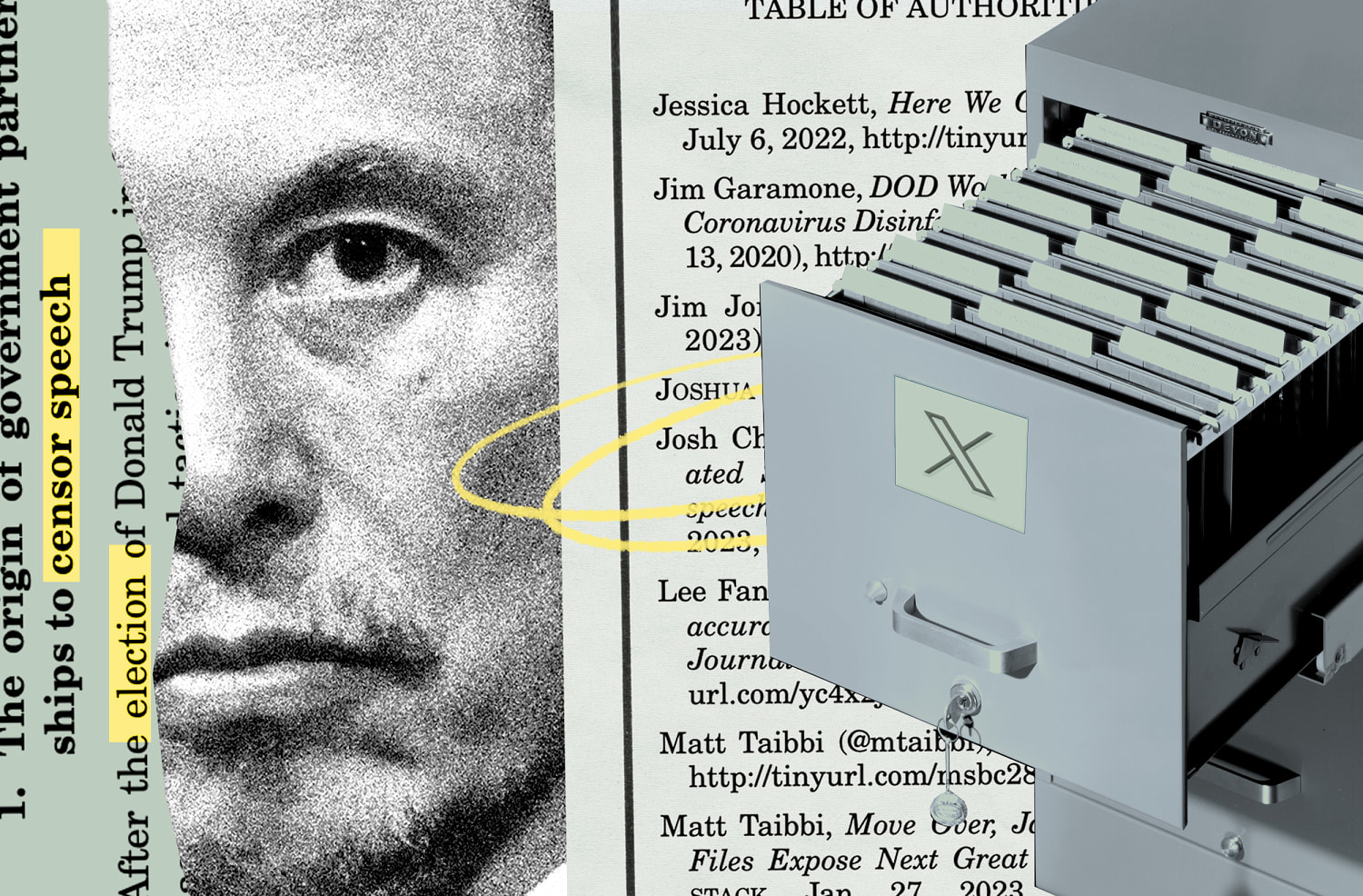
For years, conservatives and Trump supporters have claimed that social media companies were illegally biased against them. Multiple congressional hearings were held to grill tech CEOs. Lawsuits were filed accusing the companies of colluding with Democrats in the White House to censor the right.
The so-called Twitter Files, hyped by Elon Musk and handpicked journalists, were touted as smoking-gun proof of a vast conspiracy between social media and the government to violate the First Amendment. Testifying before Congress, these reporters called it a “grave threat” and evidence of “creeping authoritarianism.”
Musk has openly used his platform to boost Trump, attack his opponents and shape the political narrative.
Flash forward to today. Donald Trump is heading back to the White House. And Musk, owner of the social media company X (formerly Twitter), is a top donor, surrogate and soon-to-be government “efficiency” overseer. Musk has openly used his platform to boost Trump, attack his opponents and shape the political narrative. The collusion between government and Big Tech is no longer a conspiracy theory — it’s out in the open.
Yet suddenly, all those grave concerns about the threat to democracy have evaporated. Most of the same voices who warned of shocking government overreach in the pre-Musk Twitter era are either silent about this turn of events or they’re in wild celebration of the Trump-Musk alliance. This reveals the issue wasn’t a matter of principle; it was a matter of party.
The blatant hypocrisy is staggering, and it raises serious questions about the sincerity and consistency of the conservative crusade against social media.
First off, multiple studies have disputed the claim that social media companies were ever biased against conservatives in their moderation practices. Indeed, actual evidence tended to show that they bent over backward to allow leaders of the Republican Party to break the rules more often to avoid the appearance of any bias.
Even the heavily conservative-leaning Supreme Court found the argument that the White House and social media companies colluded to censor conservatives completely unpersuasive in a ruling this year.
But what of the “Twitter Files” and Musk’s handpicked journalists who were given a free hand to snoop through the emails of former Twitter execs?
A careful analysis of what was revealed showed little to no actual bias. However, that didn’t stop the journalists in question (as well as Trump-supporting politicians and lawyers) from simply claiming proof of a grand conspiracy between the White House and social media to coerce social media in ways that violated the First Amendment. In a series of congressional hearings held by Rep. Jim Jordan, R-Ohio, reporters Matt Taibbi and Michael Shellenberger argued that what they had uncovered was a massive conspiracy of epic proportions.
Turns out for the Twitter Files crew, ‘creeping authoritarianism’ isn’t so creepy when it’s your team doing the creeping.
Taibbi called it “a grave threat to people of all political persuasions.” Shellenberger called it “the shocking and disturbing emergence of State-sponsored censorship.” A reporter from The Free Press — a publication created by Bari Weiss (another Twitter Files reporter) — Rupa Subramanya, testified in one of these hearings warning that the American government was heading down a dangerous path of censorship, calling government connections to social media “creeping authoritarianism.”
But, oh, how things have changed.
Elon Musk still owns X. Donald Trump still owns Truth Social. These are two social media networks that can drive the news and conversations about important events in the world.
Unlike before, when there was conjecture (without evidence) of grand conspiracies and connections between the White House and important social media companies, now it’s completely explicit and out in the open.
Yet, all talk of the “grave threats” and “shocking and disturbing” connections between the White House and social media have disappeared entirely. Shellenberger has called the new administration “cathartic.” Taibbi has posted numerous articles celebrating the results of the election. The Free Press has a bunch of articles praising the new Trump administration and celebrating how the election was “a win for a new generation of builders like Elon Musk.”
Suddenly, all of the concerns about supposed close ties between the White House and social media platforms have gone out the window.
Turns out for the “Twitter Files” crew, “creeping authoritarianism” isn’t so creepy when it’s your team doing the creeping.
Before, we were told that White House officials’ merely reaching out to social media companies about election misinformation was a democracy-ending threat. Now, the world’s richest man has openly used his platform to boost one candidate, ridden that campaign’s success into the White House himself, and … crickets. The silence is deafening.
There isn’t even a suggestion that Musk should have to divest from his ownership of X. No one expects that. There is no discussion of how Musk set up an entire account on his own platform for his own “Department of Government Efficiency” and gave it a “gray” check mark — denoting it as a verified government entity.
The silence or cheers from “Twitter Files” writers and boosters over this merging of private and public interests — which they deemed a threat to Western civilization, when it wasn’t even happening — is credibility-destroying. They were simply a convenient political cudgel, quickly abandoned as soon as an actual government-social media alliance benefited their side.
For those actually concerned about the influence that social media companies and their billionaire owners can exert on our politics, the current Musk-Trump partnership should be far more alarming than the imagined conspiracies they railed against before. But don’t expect to hear that from the voices who built their brands on ginned-up outrage over social media bias. They aren’t fearless “counter-elites” — they are partisan hacks.
